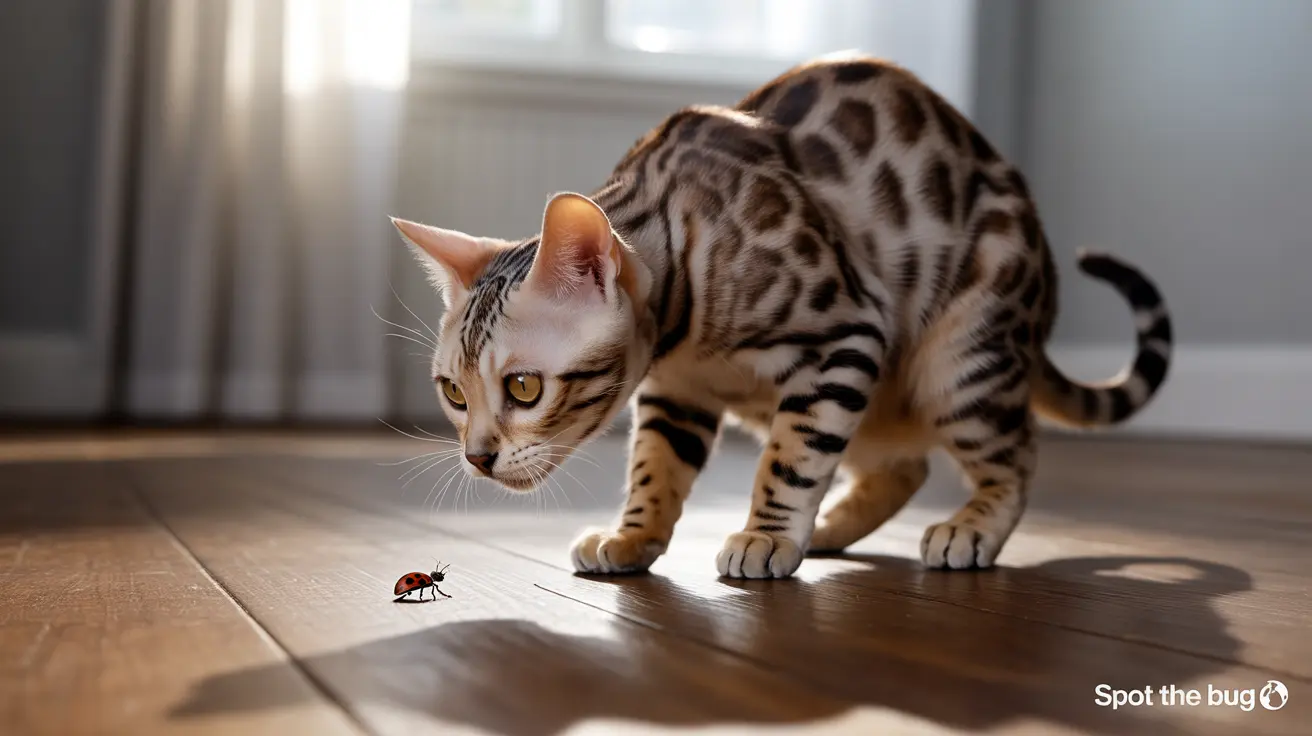If you've ever watched your cat stalk and consume insects around your home, you might have wondered about this peculiar behavior. Understanding why cats eat bugs requires delving into their natural instincts and evolutionary history as skilled predators.
This fascinating habit, while sometimes concerning to pet owners, is deeply rooted in feline biology and behavior. Let's explore the reasons behind this common practice and what it means for your cat's health and wellbeing.
The Natural Hunting Instinct
Cats are born hunters, and their interest in bugs stems directly from their predatory nature. Even well-fed domestic cats maintain strong hunting instincts that drive them to chase, catch, and sometimes eat small moving creatures like insects.
This behavior serves multiple purposes beyond mere sustenance. It provides mental stimulation, physical exercise, and helps satisfy their natural urge to hunt, which remains strong even in indoor cats who have never needed to catch their own food.
Safety and Health Considerations
While most household insects are harmless if consumed, there are some important health considerations to keep in mind. Most cats can safely eat common house bugs like flies, moths, and crickets without any adverse effects.
- Insects treated with pesticides or chemicals
- Venomous bugs like certain spiders or wasps
- Large quantities of insects that could cause digestive upset
- Stinging insects that might harm your cat's mouth or throat
Benefits of Bug-Hunting Behavior
Bug-hunting activities offer several advantages for your feline friend:
- Physical exercise and weight management
- Mental stimulation and enrichment
- Stress relief and anxiety reduction
- Natural expression of predatory instincts
- Environmental engagement, especially for indoor cats
When to Be Concerned
While bug-eating is typically harmless, watch for these warning signs after your cat consumes insects:
- Vomiting or diarrhea
- Lethargy or unusual behavior
- Swelling around the face or mouth
- Difficulty breathing
- Loss of appetite
If you notice any of these symptoms, contact your veterinarian immediately, as they could indicate an allergic reaction or toxicity.
Managing Your Cat's Bug-Hunting Behavior
Rather than trying to stop this natural behavior entirely, focus on making it safer:
- Keep your home free of dangerous insects
- Use pet-safe pest control methods
- Provide alternative hunting activities
- Ensure proper screening on windows and doors
- Maintain regular veterinary check-ups
Frequently Asked Questions
Why do cats eat bugs, and is it normal behavior?
Cats eat bugs primarily due to their natural hunting instincts. This behavior is completely normal and stems from their evolutionary history as predators. The movement of insects triggers their prey drive, making bugs an irresistible target for most cats.
Are there any health risks for cats that eat insects—especially bugs treated with pesticides or chemicals?
While most insects are harmless, bugs exposed to pesticides or chemicals can pose serious health risks to cats. The main concerns include chemical poisoning, allergic reactions, and potential internal injuries from stinging insects.
What are some safe alternatives to bugs for satisfying my cat's natural hunting instincts indoors?
Interactive toys like laser pointers, wand toys, or electronic moving toys can safely channel your cat's hunting instincts. Puzzle feeders and cat trees also provide mental and physical stimulation.
How can I tell if the bug my cat ate could be toxic or cause an allergic reaction, and what should I do if it happens?
Watch for symptoms like vomiting, swelling, difficulty breathing, or unusual behavior. If you notice any of these signs, or if you know your cat ate a potentially dangerous insect, contact your veterinarian immediately.
Should I worry if my cat only chases bugs but doesn't actually eat them, or if they eat bugs every day?
Chasing bugs without eating them is perfectly normal and actually safer than consuming them. Regular bug-eating, while generally safe, should be monitored to ensure your cat isn't ingesting harmful insects or excessive quantities.
Conclusion
Understanding why cats eat bugs helps us appreciate this natural behavior while keeping our feline friends safe. While bug-hunting is typically harmless and can provide valuable enrichment, staying vigilant about potential risks ensures your cat can safely express their natural instincts.






